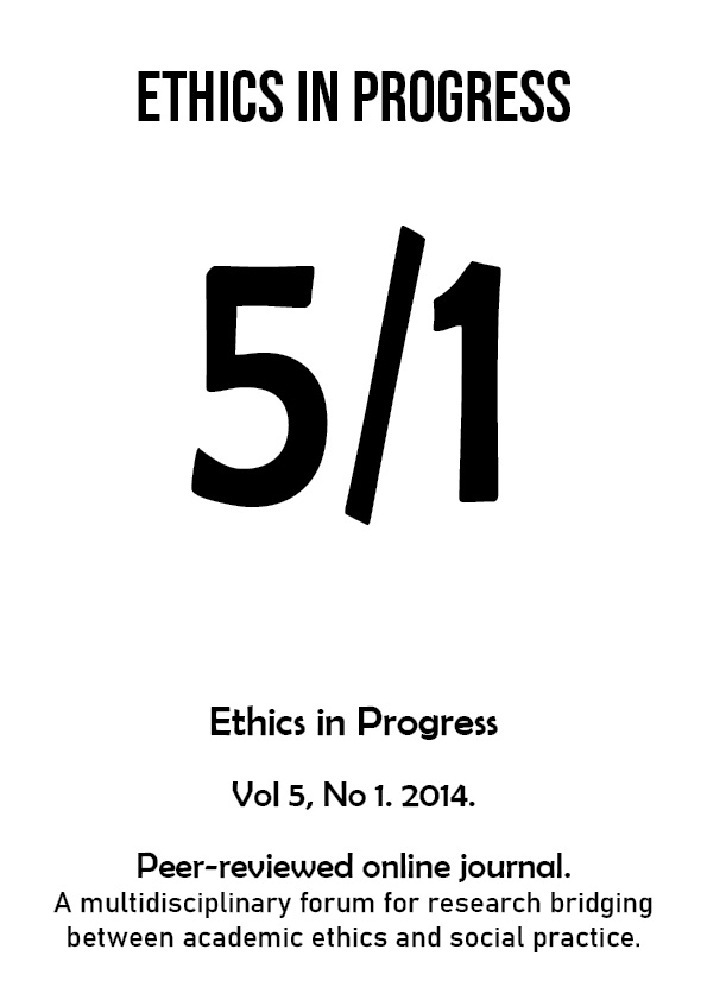Abstract
This article aims to bring together some theory – research on climate ethics, particularly the Pure Intergenerational Problem (PIP) introduced by Stephen Gardiner – and some practice – the new educational agenda proposed by the United Nations in 2002 and framed as the Decade of Education for Sustainable Development (DESD). PIP can be resolved (or rather, avoided) if a shift in values happens that would change the very context of the problem. On the other hand, DESD is aimed at promoting the values “inherent in sustainable development” and at enabling societal transformation and behavioral change. The main focus within the value shift in this article is on a particular set of values (principles, concerns) that relate present people to future generations in terms of moral responsibility. It is argued that the promotion of ethical considerations that are concerned with the distant future, and the future of humankind in general, can be a solution to the Pure Intergenerational Problem. The article also explores whether parts of this solution can already be found within the educational agenda of DESD.References
Calder, W. 2005. “The UN Decade of Education for Sustainable Development—A Progress Report”. Association of University Leaders for a Sustainable Future 7 (2): 1–8.
Caney, S. 2010. “Climate Change, Human Rights, and Moral Thresholds”. In Gardiner, S., Caney, S., Jamieson, D. & Shue H. (Eds.), Climate Ethics: Essential Readings. New York: Oxford University Press: 163-177.
Gardiner, S. 2006. “A Perfect Moral Storm: Climate Change, Intergenerational Ethics, and the Problem of Moral Corruption”. Gardiner, S. et. al. (Eds.), Climate Ethics: Essential Readings. New York: Oxford University Press: 87-98.
Gardiner, S. 2011. A Perfect Moral Storm: The Ethical Tragedy of Climate Change. Oxford: Oxford University Press.
Gardiner, S., Caney, S., Jamieson, D., & Shue, H. (Eds.) 2011. Climate Ethics: Essential readings. Oxford: Oxford University Press.
Hardin, G. 1968. “Tragedy of the Commons”. Science 162: 1234-1248.
Heberlein, T. A. 2011. Navigating Environmental Attitudes. Oxford: Oxford University Press.
IPCC (Intergovernmental Panel on Climate Change). 2007. The AR4 Synthesis report. Cambridge, U.K.: Cambridge University Press. Retrieved from: www.ipcc.ch.
Jamieson, D. 1992. “Ethics, Public Policy and Global Warming”. Science, Technology and Human values 17: 139-153.
Jickling, B. 2006. “The Decade of Education for Sustainable Development: A Useful Platform? Or an Annoying Distraction? A Canadian Perspective”. Australian Journal of Environmental Education 22 (1): 99-104.
Junger, S. 1999. A Perfect Storm: A True Story of Men Against the Sea. New York, NY: Harper
Kyoto Protocol to the United Nations Framework Convention on Climate Change. 1998. Retrieved from: http://unfccc.int/kyoto_protocol/items/2830.php
Mulà, I. & Tilbury, D. 2009. “A United Nations Decade of Education for Sustainable Development (2005-14): What Difference will it Make?”. Journal of Education for Sustainable Development 3: 87.
Pigozzi, M. J. 2010. “Implementing the UN Decade of Education for Sustainable Development (DESD): achievements, open questions and strategies for the way forward”. International Review Education 56: 255–269.
Sauvé, L., & Berryman. T. 2005. “Challenging a “Closing Circle”: Alternative Research Agendas for the ESD Decade”. Applied Environmental Education and Communication 4: 229–32.
Schlottmann, C. 2008. “Educational ethics and the DESD: Considering tradeoffs”. Theory and Research in Education 6: 207.
Schlottmann, C. 2012. Conceptual Challenges for Environmental Education. Peter Lang Publishing, New York.
UNESCO. 2005. Decade of Education for Sustainable Development: Implementation Scheme. Retrieved from: http://unesdoc.unesco.org/images/0014/001486/148654e.pdf
UNESCO. 2009. Review of Contexts and Structures for Education for Sustainable Development. Retrieved from: http://unesdoc.unesco.org/images/0018/001849/184944e.pdf
UNESCO. 2009. “Education and the search for a sustainable future”. Policy dialogue: ESD and development policy. 1 Publ., illus.; ED.2009/WS/7.
UNESCO. 2010. Universalism and Ethical Values for the Environment. Retrieved from: http://unesdoc.unesco.org/images/0018/001886/188607e.pdf
UNESCO. 2012. Shaping the Education of Tomorrow: Report on the UN Decade of Education for Sustainable Development. Retrieved from: http://unesdoc.unesco.org/images/0021/002166/216606e.pdf
United Nations Framework Convention on Climate Change. 1992. FCCC/INFORMAL/84. Retrieved from: http://unfccc.int/resource/docs/convkp/conveng.pdf




